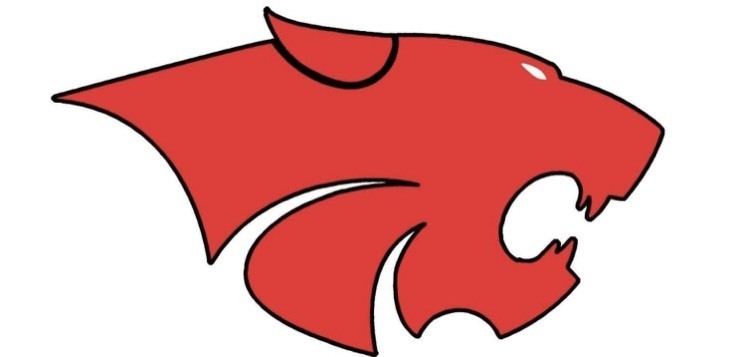LINN — Superintendent Bob James presented his “State of the District” remarks at the Aug. 21 Linn R-2 school board meeting.
“Over the past several years, Linn R-2 has moved steadily forward,” James said. “We are stronger academically, athletically, organizationally, and the core of that progress is a staff committed to students, families who believe in us, and a community that has stood behind our schools.”
At the heart of Linn’s achievements is a cultural shift. “If you walk through our hallways today, and I mean today, you will notice a new energy, and staff collaborating,” said James. “Professional development is focused on students and learning classrooms where teachers are trying fresh approaches to engage our learners. Even our most veteran educators are stepping outside their comfort zones to improve instruction.”
At the elementary level, Linn R-2’s phonics gaps are closing significantly. and a new math curriculum is making content more accessible.
James noted that growth shows up in classrooms, on playing fields, and across every corner of the district.
Wildcat athletes are not only winning games, but leading in the classroom with volleyball posting a varsity GPA of 3.995, and softball being named the number one academic team in the state. Meanwhile, volleyball brought home its first-ever conference championship. Softball balances that out with advances in back-to-back final four appearances and football recorded its very first varsity win and now boasts its largest roster in program history.
“That same spirit of achievement extends well beyond athletics,” said James, noting that band and choir are growing in both size and quality. “Our theater program is flourishing, and our student clubs are continuing to grow and multiply with student led initiatives like our new sign language club.”
Elementary students are stepping into leadership roles as greeters, and the FFA chapter continues to excel at competitions.
From kindergarten to high school seniors signing college scholarships, Linn students are demonstrating that excellence comes in many forms. “At the same time, our special education team is identifying needs earlier than ever, supporting students more consistently and seeing remarkable growth in our youngest learners,” said James. “Academic improvements are not just accidents. They are the direct results of staff dedication and the structures we have built. To digital curriculum, data-driven collaboration, and a district-wide focus on student growth.
“Our community partnerships have also been central to our success, from the boosters and PTO to local businesses,” he continued. “State Tech, volunteers, and donors have helped us make visible improvements to our facilities and grounds.”
Inside the schools, preventative maintenance systems have shifted work from reactive to proactive, and custodial teams are more organized and effective than ever, James told the board.
In food service, staff are serving healthier, more homestyle meals, involving students in menu planning, and making lunch a positive daily experience.
“These things may seem small, but together they create schools that students and families are proud to call home,” said James. “As a district, we’re on solid ground. (For) the first time in years, we are fully staffed. Our budget is balanced. Our audits reflect efficiency and smart planning, and our financial rating is A+.”
Enrollment is climbing, with more than 20 tuition-paying students choosing to attend Linn R-2, and about 10 or 12 new enrollees.
“Perhaps most importantly, our culture and climate are strong,” said James. “We’re attracting staff who want to be here while negative influences have naturally moved on.
All of that has been done in tandem with facility improvements that stretch across the district, its campuses and programs.
Middle school students will leave the basement next year after 50 years in a space that was not originally intended to be inhabited by students, and students in grades 6-12 will enjoy an enlarged and improved facility.
Parking lots will be extended, upgraded, well lit, and secured.
By the end of this year, Linn R-2 will have replaced in the last three years a track, a football field, dugouts and back-stops at the softball and baseball fields, field event activities, shot put, long jump, the pits, discus, and staff will have solved most of the drainage and infrastructure issues, some of which have persisted for years and a few for decades.
“The list is in reality too long for this venue and too long for me to memorize,” said James. “It has happened fast, with a great deal of help from partners across the district and community. But even with all this progress, we must keep our eyes on the challenges ahead.”
James told the board the most significant is staff compensation. “Our current base salary is $37,000, below the state’s new minimum of $40,000 which will be $41,200 next year. By law, that base will rise by 3% annually, reaching over $45,000 by the year 2030,” he added. “While we are financially strong today, this mandate will place increasing pressure on our budget. We cannot simply aim to meet the minimum when it arrives. We must plan now to meet or exceed the base salary by the ‘26 or ‘27 school year. Not just because legislation requires it, but because our students deserve the very best educators, and we cannot build quality schools or outstanding citizens without attracting and retaining top talent.
“So tonight, I’m proud to say the state of the district is strong — stronger than it’s been in many years,” said James. “But our story is not finished, and neither is the hard work. The road ahead will require careful planning, continued community support, and a shared belief in the potential of our students. Thank you for your support and your continued faith as we keep progressing through the work.”
Board President Dr. Shawn Strong praised the overview.
“Our number one focus will be academics. Academics. Academics. Academics,” he emphasized. “We’re going to get rid of all those ‘but’ statements and really bear down on the quality of our instruction

